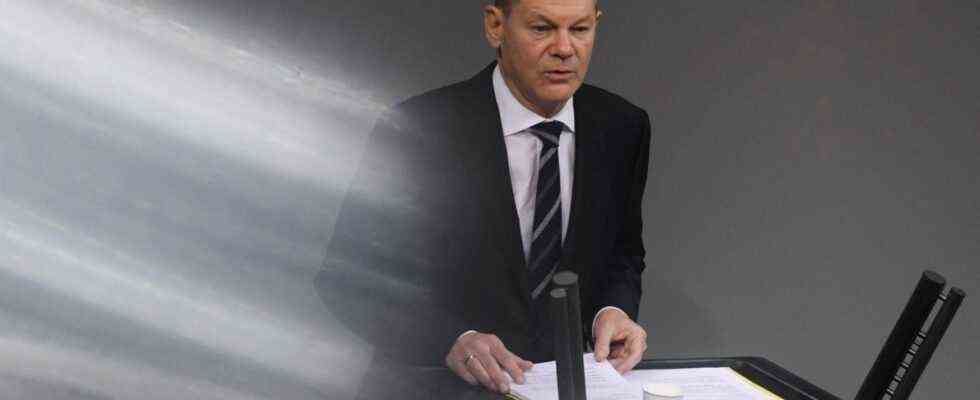One week after his election as Federal Chancellor, Olaf Scholz (SPD) presented the program of his traffic light government for the next four years in the Bundestag. His first government statement is followed by a two-and-a-half hour debate in which the Union parliamentary group leader Ralph Brinkhaus (CDU) takes on the role of opposition leader for the first time.
It is customary for a new Chancellor to present the guidelines for the work of his government shortly after his election. “There’s a lot to do,” said Scholz. The traffic light coalition wants to set the course for the future: “We have no time to lose.”
Corona crisis:
In the pandemic, Scholz appealed to citizens to reduce contacts, keep their distance and get vaccinated. In his address, the Chancellor was optimistic that things would get better: “Yes, we will win this fight, we will overcome the crisis.”
Scholz announced: “We will do everything that is necessary. There are no red lines for the federal government.” The federal government will “not rest for a single moment” and “move every possible lever until we have all regained our former lives and our freedoms”.
Faced with death threats and torch marches in front of the private apartments of politicians, Scholz said: “We will not let a tiny minority of uninhibited extremists try to impose their will on our entire society.” This will be countered with all their might: “Our democracy is a defensive democracy.”
Climate change:
In view of the fight against climate change, Scholz prepared the Germans for profound changes. “Now we have 23 years ahead of us in which we must and will get out of fossil fuels,” he says. “This means the greatest transformation of our industry and economy in at least 100 years lies ahead of us.” Above all, he emphasized technical progress. Only with him can Germany become climate neutral and keep up with global competition.
For the coming year, Scholz announced an extensive program to reduce greenhouse gases. “We are committed to the Paris Climate Agreement and will contribute to its success.”
Traffic:
The traffic turnaround will be a central component of climate policy, said Scholz. The focus of the government will be on expanding the railways, where freight traffic and passenger numbers are to be increased significantly. The Chancellor also tried to take the side of the motorist: “Many like to drive and it should stay that way.” But it depends on the drive. In 2030 there should be 15 million electric cars in Germany.
Thanks to Merkel:
Scholz explicitly turned to his predecessor and highlighted Angela Merkel’s services for Germany over the past 16 years. He referred in particular to the smooth change of government. Especially the noiseless change of power in Berlin was received “worldwide with a lot of admiration and respect”: “Thank you, Dr. Merkel.”
What’s next for Scholz?
After the debate, Scholz travels to Brussels, where he takes part in the summit of the so-called Eastern Partnership. These are consultations between the EU and Armenia, Azerbaijan, Georgia, Moldova and Ukraine, which will also deal with the crisis with Russia. Scholz and French President Emmanuel Macron want to meet with Ukrainian President Volodimir Zelensky before the summit. On Thursday, Scholz will take part in his first regular EU summit as Chancellor.

